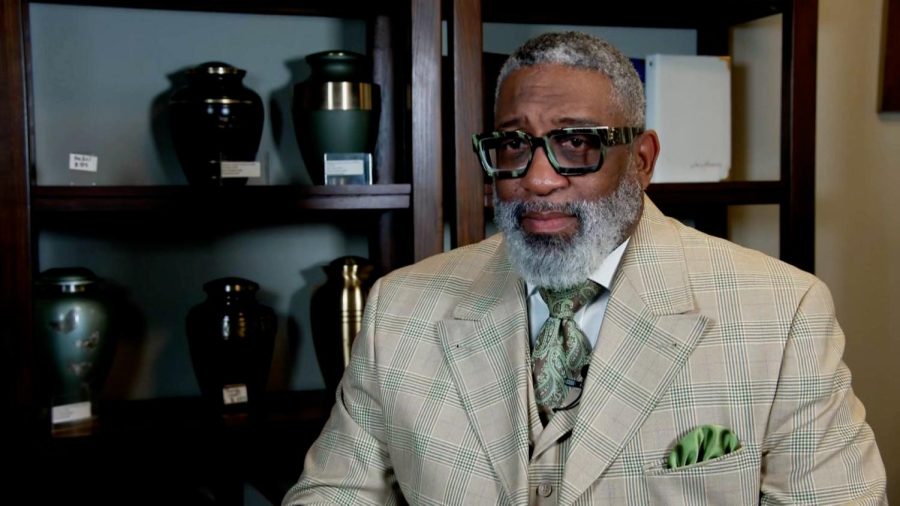He’s handled some of the Minnesota’s most high-profile deaths. Today, he’s hosting Daunte Wright’s funeral
He’s handled some of the Minnesota’s most high-profile deaths. Today, he’s hosting Daunte Wright’s funeral
April 22, 2021
(CNN) — For three decades, Tracy Wesley has met people on life’s most difficult days.
He runs Estes Funeral Chapel in Minneapolis — one of only two Black-owned funeral homes in Minnesota. And he’s handled some of the Twin Cities’ most high-profile deaths: George Floyd, Jamar Clark and now Daunte Wright.
In his line of work, Wesley says he is not bothered by people who naturally pass or transition but is troubled by police killings.
“Not only have you lost, you’re suffering a loss that was unnecessary,” he said. “There needs to be change because the system is racist,” he said. “I am afraid it (police killings) is never going to go away.”
Days before George Floyd’s family celebrated a guilty verdict on all three charges for the murder of their loved one, Wesley helped Daunte Wright’s family arrange their son’s funeral.
Wesley said the Wright family selected a red urn to store Daunte Wright’s ashes. During the process, Wesley learned red was one of Daunte Wright’s favorite colors.
Wright will be cremated following his funeral, Wesley said. For the Thursday funeral service, the family is renting a white casket to hold the body of the 20-year-old.
“White always means angelic,” Wesley said, noting red and white roses will drape the casket. “The red and white roses, they just kind of like that.”
Wright was shot and killed by police during a traffic stop about 15 miles from the Cup Foods where George Floyd was killed. The two men, killed in police custody nearly a year apart, became focal points for the national conversation around police accountability and racial bias in the US.
The manner in which each was killed differed. An officer knelt on a handcuffed Floyd’s neck for more than 9 minutes after Floyd exited his vehicle. Wright was stopped for an expired tag, though authorities later learned he had an outstanding gross misdemeanor warrant, and was fatally shot in his vehicle as an officer yelled out “Taser!”
But their similarities drew particular heartbreak from protesters calling for justice: Floyd called out for his mother in his last moments and Wright called his mother as he was pulled over. They both were fathers to young children and both of their deaths were captured on video.
“It’s a little bit of a different state of mind that you have to be in to help. On one hand, you’re upset being African American in this country,” Wesley said. “And on the other hand, being a professional, you have to do all that you can and focus to help our families.”
Wesley has handled killings that people outside the state of Minnesota know little about. They are among the names at a symbolic cemetery called “Say Their Names,” blocks from the site where Floyd died.
The site has rows of headstones honoring men and women killed by police. The youngest is for a 7-year-old girl who was killed during a police raid in Michigan.
Stevante Clark’s brother — Stephon — is among the names at the cemetery. Sacramento police shot and killed Clark’s brother in 2018 — police said they thought he had a gun, but a cell phone was discovered instead.
“It is just, it’s too many names. It sucks,” Clark said. “We couldn’t get it together after all these people. I am looking at like where is the respect for life.
“My heart just my heart breaks for the family because this is the club nobody wants to be a part of,” he said. “I wouldn’t wish this on my worst enemy.”
And in the face of death, Wesley does his part to help families celebrate lives of the people they love.
“It is tough. I’ve cried a lot, you know, usually when I am helping them,” he said. “I do fairly well hold my composure, but you know, in the office there’s many times that when we’re done … it’s exhausting.”
The-CNN-Wire
™ & © 2021 Cable News Network, Inc., a WarnerMedia Company. All rights reserved.









